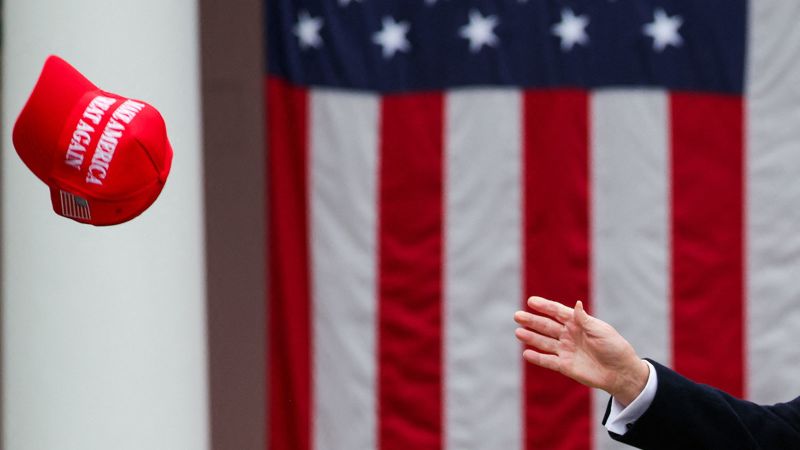In recent developments within the political arena, Donald Trump’s super PAC, MAGA Inc., has amassed a staggering $177 million in fundraising during the first half of the year alone. As he enters July, the organization boasts nearly $200 million in cash reserves. This amount provides Trump with monumental financial leverage as the political landscape gears up for the highly anticipated 2026 midterm elections.
The financial prowess demonstrated by MAGA Inc. is particularly striking given that Trump is constitutionally barred from seeking a third consecutive presidential term. This financial clout highlights the vigor with which Trump and his campaign team have engaged in fundraising efforts since his previous return to office. Not only does this stellar fund collection reflect Trump’s sustained popularity among donors, but it also underscores a potent strategy aimed at consolidating power within the Republican Party, especially leading into critical upcoming elections.
Among the prominent donors contributing to this significant sum are some of the most influential figures in finance and business. For example, billionaire Wall Street trader Jeffrey Yass has made a substantial contribution of $16 million. Additionally, cosmetic heir Ronald Lauder provided $5 million, while Silicon Valley venture capitalist Marc Andreessen gave $3 million to further Trump’s political ambitions. These contributions illustrate how Trump’s appeal can transcend political affiliations, attracting substantial financial backing from high-profile individuals across various sectors.
In a notable move, Tesla’s CEO Elon Musk also joined the lineup of key donors, writing a $5 million check on June 27. Interestingly, this donation coincided with Musk’s contributions to two separate super PACs aimed at helping Republicans maintain control over the U.S. House and Senate. Despite Musk’s financial support, it appears that his relationship with Trump is not without its complications, as just three days after his donation, Musk criticized Trump’s policy agenda, referring to it as “insane.” This feud serves as an insightful reminder of the complexities involved in high-stakes political dynamics, even amid financial alliances.
The financial disclosures filed by MAGA Inc. with the Federal Election Commission also reveal a significant amount of corporate support, indicating a robust intertwining of business interests and political fundraising. Notably, the Texas-based pipeline company Energy Transfer and its executive chairman, Kelcy Warren, collectively contributed $25 million to Trump’s campaign, alongside a considerable $5 million from UnitedHealthCare. Such investments from corporate entities reflect a keen interest in maintaining political ties that could favor their business operations.
The impressive cash reserves of $196 million held by MAGA Inc. highlight Trump’s distinctive position in the Republican political landscape, eclipsing the available resources of other super PACs engaged in Republican politics by a considerable measure. This economic advantage positions Trump to exert outsized influence during GOP primaries, potentially swaying candidate selections and strategies to align with his vision for the party.
In line with this influence, a group affiliated with MAGA Inc. has already begun to strategically target dissenting Republican representatives, such as Kentucky Representative Thomas Massie. Massie has notably opposed Trump’s domestic policy initiatives and diverged from the party line on certain foreign policy matters. This targeted spending serves as a warning to other GOP members, emphasizing Trump’s desire to maintain a unified front for his version of Republican ideology.
As political tensions simmer and the clock counts down to the upcoming elections, Trump’s MAGA Inc. stands as a formidable force within the Republican party. With significant financial backing and aggressive targeting of opposition, the super PAC is well-positioned to shape not only the midterms but the broader political narrative leading into the future. This situation, characterized by a fusion of finance, influence, and political ambition, lays the groundwork for a dynamic and potentially tumultuous electoral landscape.
As political observers track these developments, it becomes evident that the coming months will be critical for both Trump and the Republican Party as they navigate the complexities of fundraising, influence, and candidate positioning. The financial data reported by MAGA Inc. offers just a glimpse into the intricate interplay between money and power in today’s political climate.











